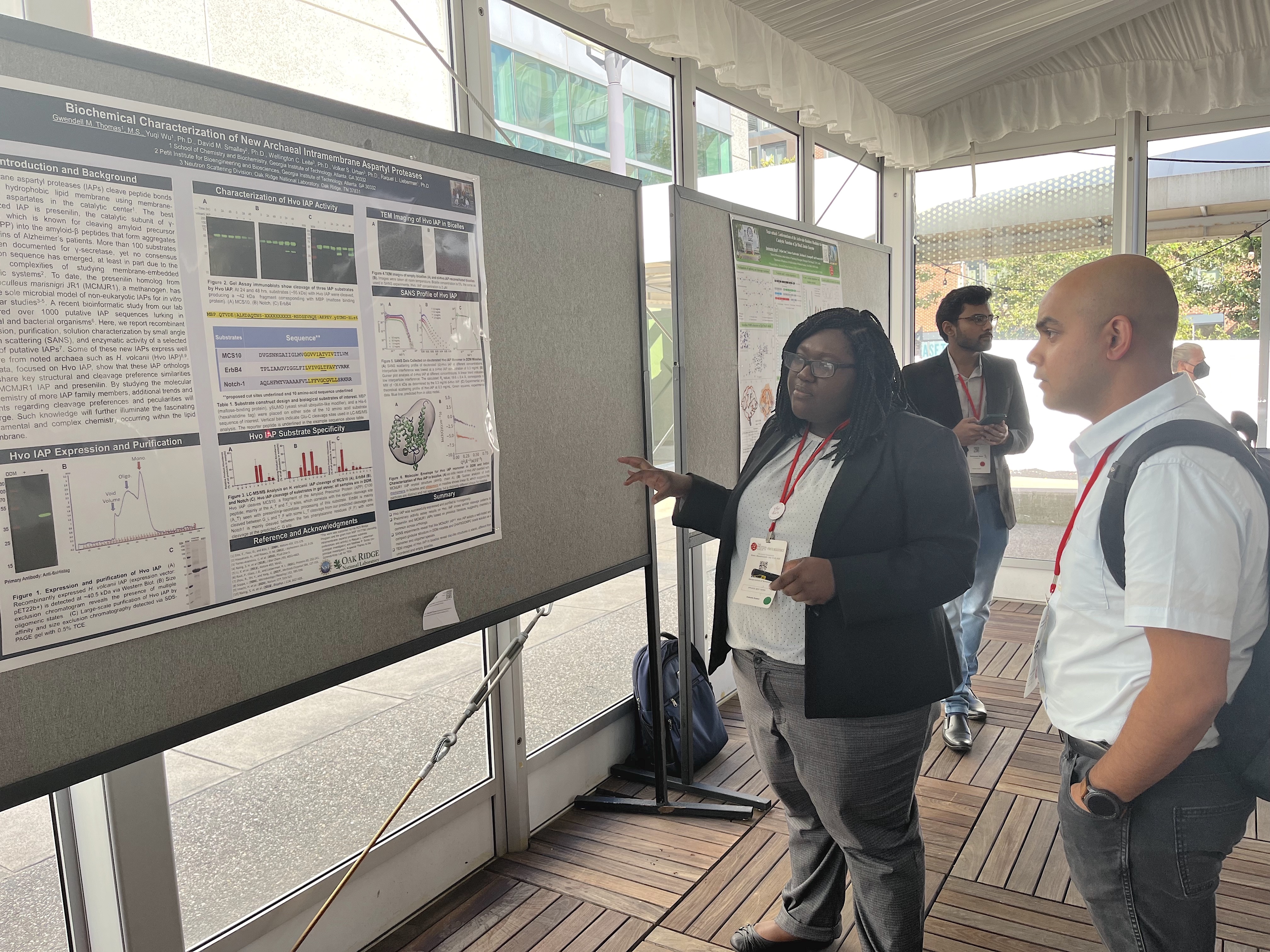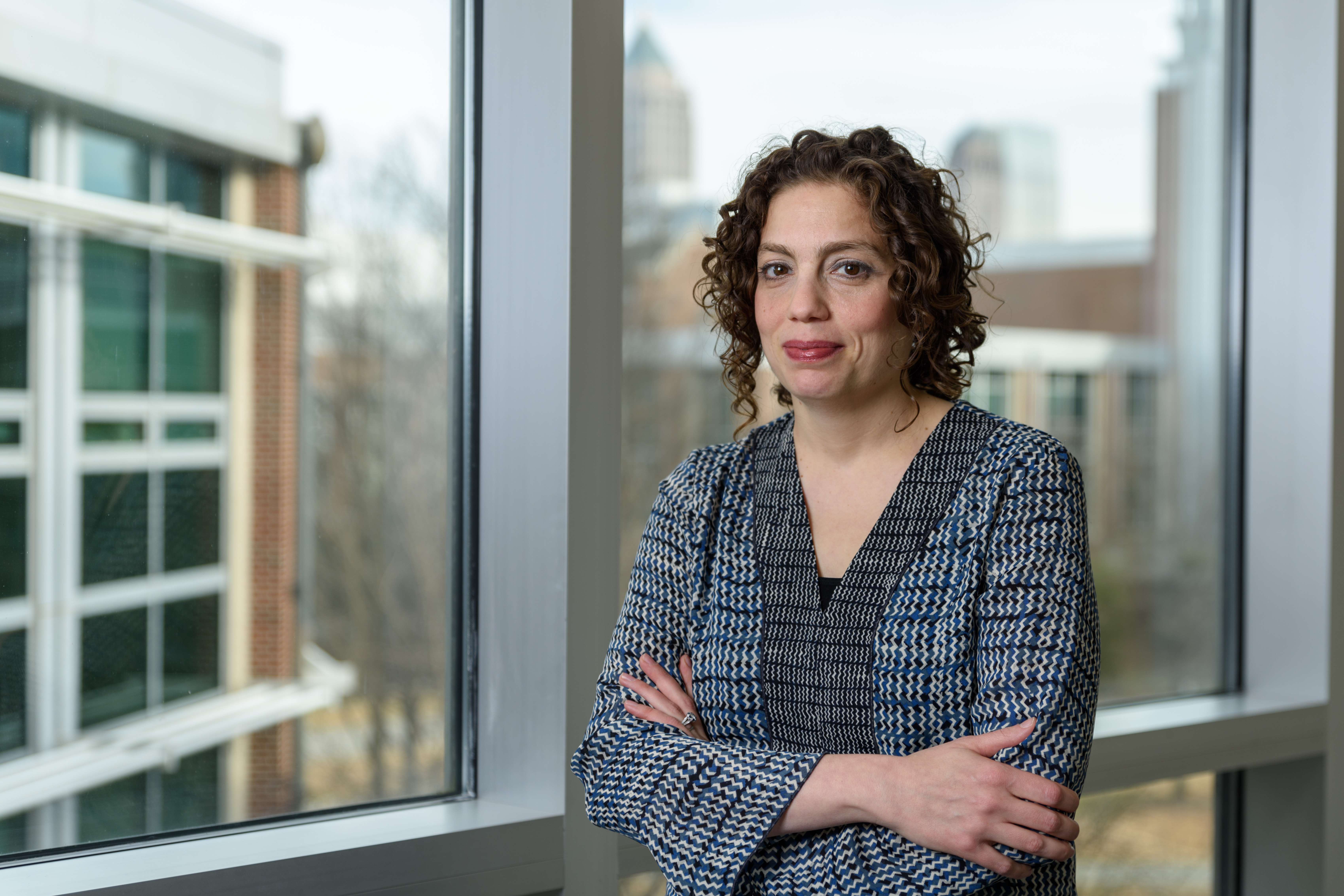
Jul 25, 2023
Since she received her first National Institutes of Health (NIH) research grant in 2011, Raquel Lieberman and her lab have published 30 papers about the protein myocilin, which is linked to childhood glaucoma.
“I do consider it a feather in my cap to have succeeded in working on the molecular aspects of how this protein myocilin misfolds in the eye for as long as I have,” says Lieberman, who holds the Sepcic Pfeil Chair and is a professor in the School of Chemistry and Biochemistry. “The project is a little like eating an artichoke. We are taking one leaf off at a time until we get to the heart of what‘s really going on.”
Her work is supported by the NIH’s National Eye Institute, which also funds supplemental opportunities to recognize excellence in inclusion and accessibility mentorship. Lieberman and Ph.D. student Gwen Thomas recently earned this special supplemental funding to continue to expand their research — and representation in the field.
The new funding was awarded the maximum amount, “the equivalent of an extra year of funding for my lab,” Lieberman says. “The award allows us to pursue some new research directions that are only possible with these funds.” She credits the award to a record of research progress over the last 12 years — and to efforts beyond the mysteries of myocilin.
Lieberman is the inaugural chair of the Sepcic Pfeil Ph.D. Faculty Endowment Fund to increase the number of women faculty in the School of Chemistry and Biochemistry. The Fund was established by Kelly Sepcic Pfeil, a member of the College of Sciences Advisory Board who earned her M.S. and Ph.D. in Chemistry from Georgia Tech.
“As someone who is still often one of few women in a room full of men, I am very committed to the idea that we need as many different voices in science as possible, so any group of scientists gathered reflects the makeup of our society,” Lieberman adds.
ACS Bridge
Lieberman and Thomas first met at a scientific conference in 2018, while Thomas was an undergraduate student at another school. “I remember we chatted about her undergraduate research poster that dealt with a coronavirus protein,” Lieberman says. “She was way ahead of her time.”
A year later, Thomas applied to be Lieberman’s research technician in her lab. “I've always dreamed of being a scientist and making an impact on the world, and now with the guidance of my mentor, Dr. Lieberman, I am able to realize that dream,” Thomas says. “Since my time as an undergraduate, I have always wanted to study protein structure and function as it relates to infectious diseases.”
When the pandemic hit, Thomas volunteered to keep working on an in-home polymerase chain reaction (PCR) test kit project. “She made a key protein ingredient in the final formulation, an RNase inhibitor, all on her own — at all hours of day and night,” Lieberman says.
Thomas then decided to work on a master’s degree in chemistry at Georgia Tech, leveraging the American Chemical Society Bridge Program program, which the School of Chemistry and Biochemistry joined in 2020. The program is designed to increase the number of chemical science Ph.D. degrees awarded to underrepresented students by offering resources and mentorship opportunities.
ACS Bridge mentors helped Thomas work on her thesis side project: the study of a plastic-degrading enzyme, LtPHBase. She published a paper detailing how she solved the structure of the enzyme that was awarded “2022 Best Paper” from The Protein Society. In July 2023, Thomas traveled to Boston where she gave a presentation on her enzyme project at the organization’s annual meeting.
“Gwen has grown so much as a scientist over the past few years,” Lieberman says. “I can’t wait to see how she flourishes now that she has matriculated into our Ph.D. program.”
Adding new voices
For Lieberman, it’s a new year of adding new voices to the School — and one more year of research progress and support. “With any luck, it will continue past 2025 with another renewal.”
For Thomas, it signals the start of a rewarding career in chemistry research. “If I were to tell my younger self about all the opportunities that I have access to now, she wouldn't believe me,” Thomas says. “TPS has been a great avenue for me to meet other junior scientists and get their perspectives on how our generation can shape the world. I look forward to sharing my science.”
